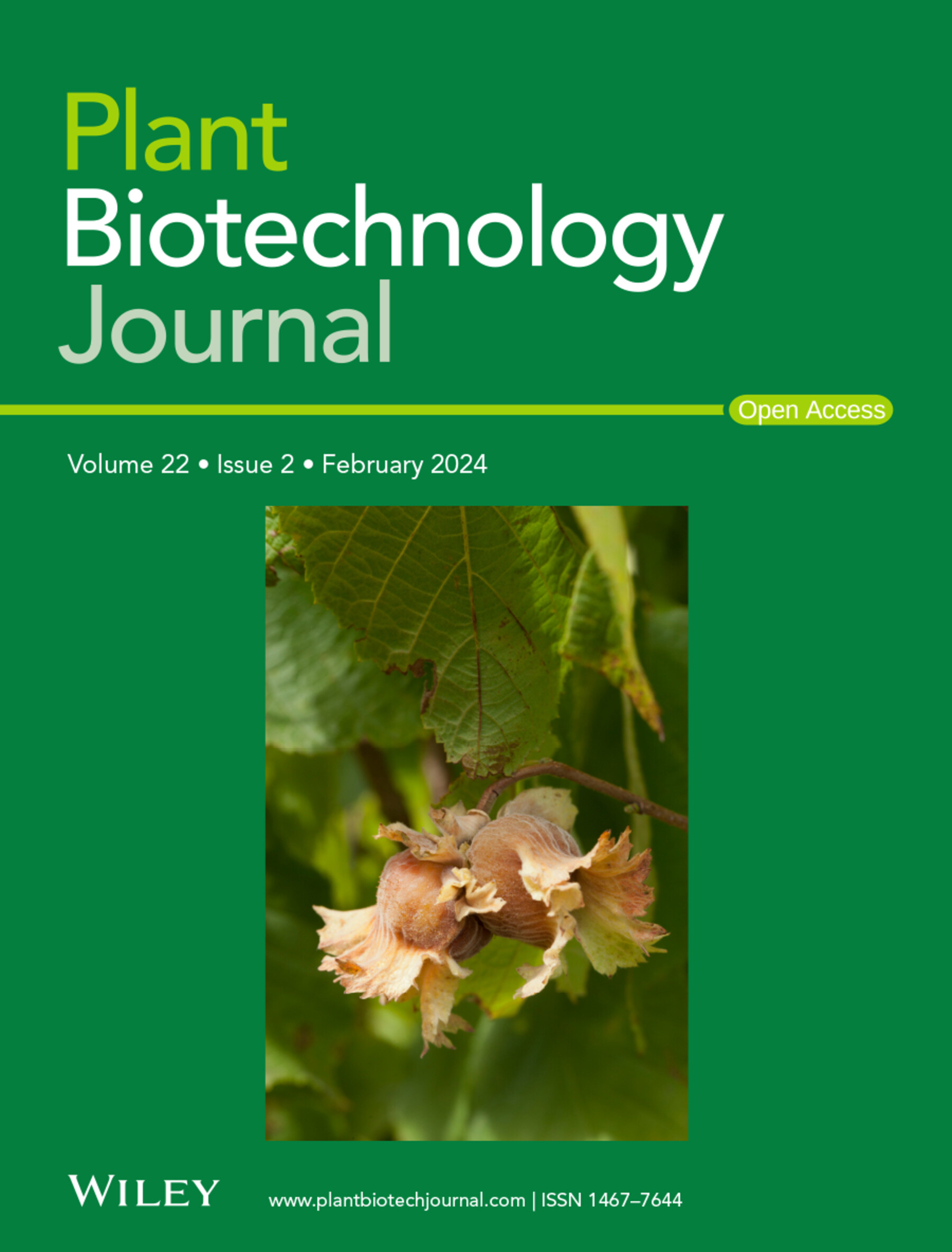过表达stspfa2通过StSP6A增强高温下马铃薯的耐热性并促进其形成结核。
IF 10.5
1区 生物学
Q1 BIOTECHNOLOGY & APPLIED MICROBIOLOGY
引用次数: 0
摘要
高温是严重抑制马铃薯(Solanum tuberosum L.)生长和产量的主要环境胁迫。热休克转录因子(Hsfs)在植物耐热性中起关键作用,但其在马铃薯中的作用尚不清楚。本研究表明,在高温条件下,高表达HSF家族成员StHsfA2可以提高转基因马铃薯的耐热性,减轻产量损失。我们发现,StHsfA2通过结合其启动子中的热休克元件样基序上调StSP6A的表达。StSP6A编码开花位点T的同源基因,这对块茎的形成至关重要。有趣的是,我们发现StHsfA2与StSP6A蛋白相互作用,从而抑制StHsfA2介导的StSP6A上调。然而,高温胁迫会减弱StHsfA2-StSP6A的相互作用。因此,负反馈回路在高温下调节StSP6A通过StHsfA2的调节。综上所述,我们的研究表明,StHsfA2是马铃薯植株耐热性的关键调控因子。它的过表达增强了耐热性,并可能提高块茎产量,使其成为抵御全球变暖带来的产量损失的有希望的候选基因。本文章由计算机程序翻译,如有差异,请以英文原文为准。
Overexpression of StHsfA2 Enhances Thermotolerance and Promotes Tuberisation in Potato Under High Temperature Through StSP6A.
High temperature (HT) is a major environmental stress that severely inhibits potato (Solanum tuberosum L.) tuberisation and yield. Heat shock transcription factors (Hsfs) are pivotal in plant thermotolerance, yet their roles in potato remain unclear. Here, we demonstrate that overexpression of StHsfA2, a rapidly HT-responsive HSF family member, enhances thermotolerance and mitigates yield loss in transgenic potato under HT conditions. We reveal that StHsfA2 upregulates StSP6A expression by binding to the heat shock element-like motifs in its promoter. StSP6A encodes a homologue of FLOWERING LOCUS T that is critical for initiating tuber formation. Intriguingly, we found that StHsfA2 physically interacts with the StSP6A protein, which in turn inhibits StHsfA2-mediated StSP6A upregulation. However, HT stress attenuates the StHsfA2-StSP6A interaction. Thus, a negative feedback loop modulates StSP6A regulation by StHsfA2 under HT. In summary, our study shows that StHsfA2 is a key regulator of thermotolerance in potato plants. Its overexpression enhances heat resistance and could boost tuber yield, making it a promising candidate gene for countering yield loss amid global warming.
求助全文
通过发布文献求助,成功后即可免费获取论文全文。
去求助
来源期刊

Plant Biotechnology Journal
生物-生物工程与应用微生物
CiteScore
20.50
自引率
2.90%
发文量
201
审稿时长
1 months
期刊介绍:
Plant Biotechnology Journal aspires to publish original research and insightful reviews of high impact, authored by prominent researchers in applied plant science. The journal places a special emphasis on molecular plant sciences and their practical applications through plant biotechnology. Our goal is to establish a platform for showcasing significant advances in the field, encompassing curiosity-driven studies with potential applications, strategic research in plant biotechnology, scientific analysis of crucial issues for the beneficial utilization of plant sciences, and assessments of the performance of plant biotechnology products in practical applications.
 求助内容:
求助内容: 应助结果提醒方式:
应助结果提醒方式:


